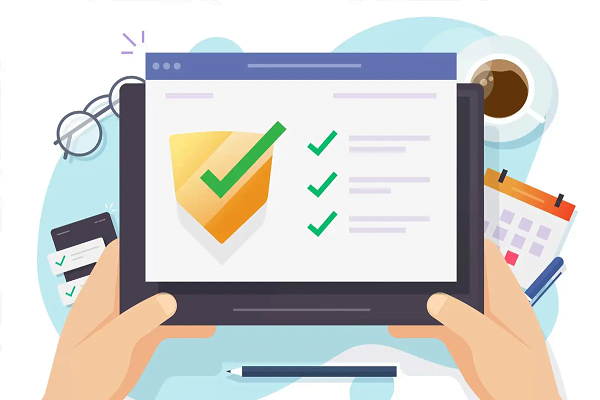As private investigators, we’ve got a lot of experience working online to track and trace people, so we know how easy it can be to find a wealth of information about someone.
Obviously, we always act ethically, but not everyone online is doing the same. Indeed, there are plenty of villains out there just waiting to snap up the opportunity to scam someone or to steal their identity.
Because we work with a lot of online data, we can pass on these top tips to help you stay safe with your online activities:
Social Media Privacy Settings
It’s really important to check your social media privacy settings, and make sure you’re not sharing your personal life with strangers. There are very few good reasons to have a public profile, and you have to be very careful if you do.
It’s always best to use a private one, so that only friends and family can see what you post. Also, try to avoid posting about when you’re on holiday or tagging yourself away from home, since this could advertise your home as being the prime spot for a burglary.
And don’t do those silly quizzes that go around which ask things like your favourite colour or first pet’s name. They’re trying to gather information about you that could be part of your online passwords!
Public Computers & Public WiFi Use
These days we almost all have our own smartphone and likely a laptop or PC at home. However, there may still be occasions where we have to use a computer in a public location. When you do, make sure you always log out of any accounts online before you log yourself out of the system. Don’t risk accidentally leaving yourself logged into anything, where any stranger could access your info.
You should also be careful using your own devices on public WiFi. They aren’t always secure networks, so someone could hop on and monitor your activity. When connecting to a WiFi network you don’t know, avoid using sensitive apps like your bank.
Phone App Permissions
You can’t trust the apps that you download to your phone. A lot of games or other tools are set up purely to capture your phone information. You can head to your phone’s settings to learn more about the permissions that each app is granted, and to change them.
Does that game really need access to your messages and calls? Probably not. Certainly not your camera. So be sure to disable those. And if you’re in any doubt about an app being a scam, just delete it. It’s not worth the risk.
Educate Your Family
If you already think you’re tech savvy, and you aren’t worried about your data online, then make sure you’re passing that information on to your family. Younger generations, and some older generations, may be naïve about the risks involved.
The more people that know how to stay safe online, the more that everyone’s personal data is kept safe, and the fewer hackers and scammers that can thrive in the world.
And us? Well we always do our private investigation work using legitimate data sources. So, we’d rather everyone stayed safe too.
Speaking of which, if you need our help with tracking someone (online or in person), or you want any of our other services, just give us a call on 01772 334700.

